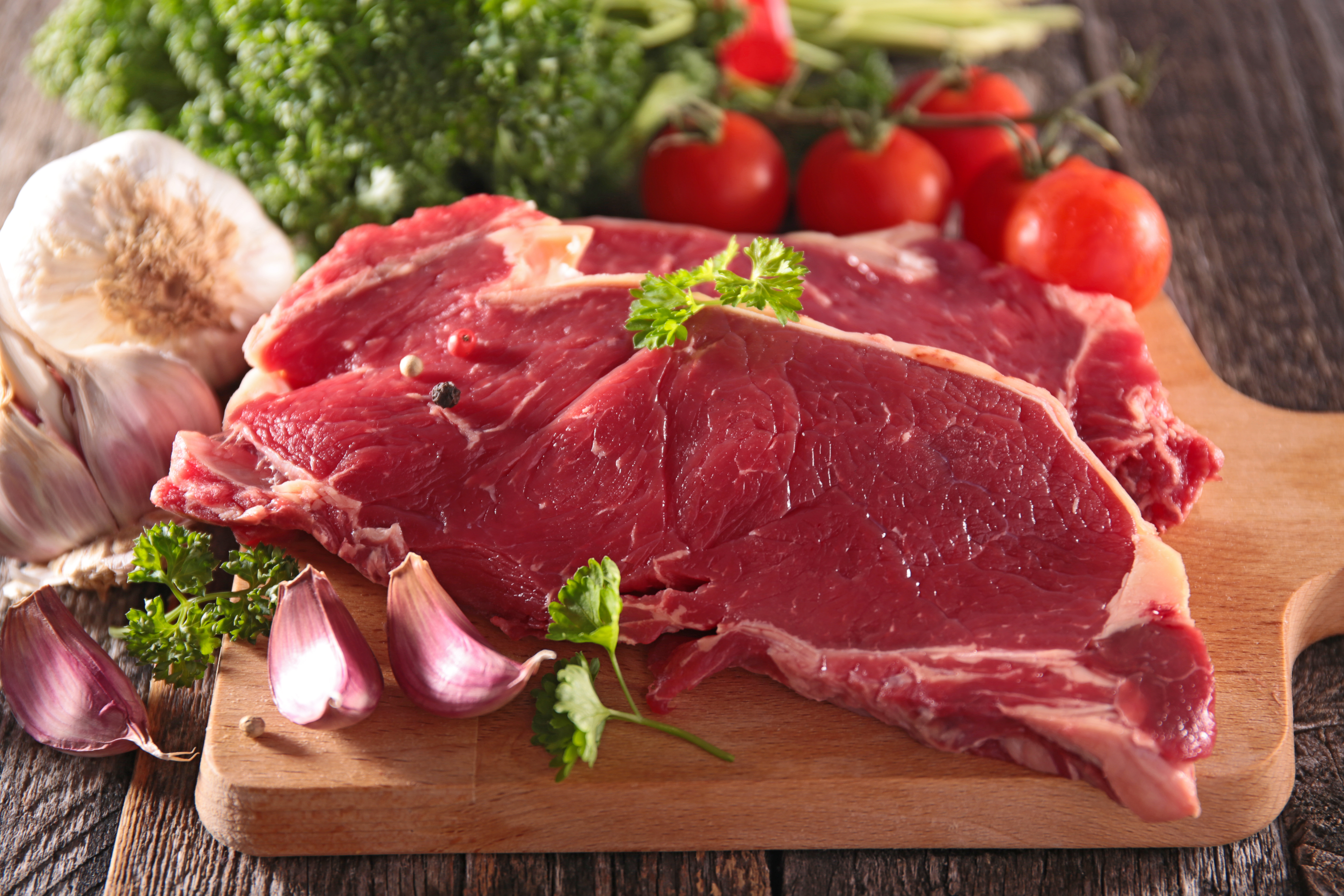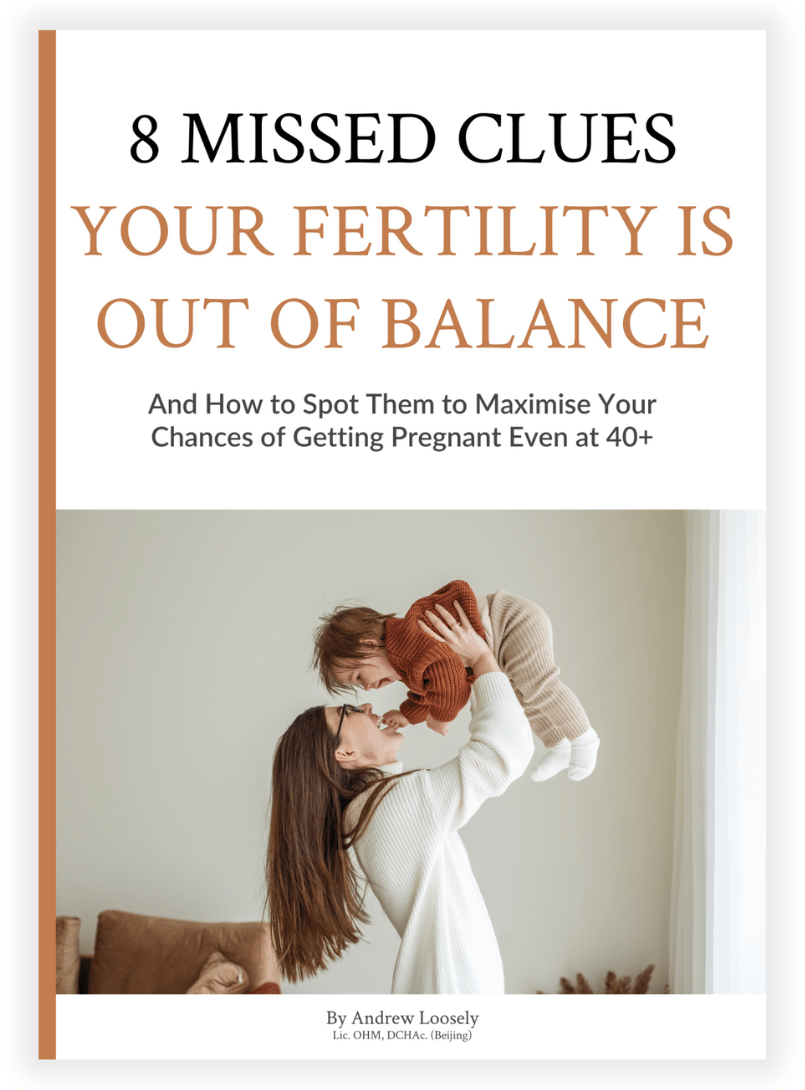Beef is great for fertility – here’s why!

Archaelogical evidence shows that man has been eating meat for the past 1.8 million years – since our evolution to Homo Erectus. It has been and still is a vital part of important nutrition for humans.
Until more recent decades meat has been mostly hunted or naturally pasture raised. This had a huge impact on the quality of life of the animal, the environment, and the meat we were eating.
In the past 70+ years we have turned to mass production and fast growth, which causes both an imbalance in the health and well-being of the animal, as well as issues for our environment.
Poorly raised and mass produced animals is not something I support or advocate.
But I do believe in the importance of having meat in our diets, and even more so when on a fertility journey.
The key is the quality of the meat you eat.
Good quality grass-fed or pasture raised beef should be included in your diet at least 3-4 times a week for optimum nutrient support.
When using foods medicinally according to the traditional methods I use with my clients, you eat different meats at different stages of your menstrual cycle to properly support each phase.
Beef can be eaten all the way through the cycle but is better during the follicular phase.
The best way to eat beef is when it has been cooked gently & slowly for a long time.
This makes it easier for the digestive system to extract nutrients as the cooking process has done much of the work for you.
Casseroles & stews are a favourite but good quality steak mince & the odd fillet steak is really good too.
Key nutrients of Beef are:
Vitamin B3: Vitamin B3, also known as Niacin, as with most other B vitamins is also involved in energy production within the mitochondria of your cells (the powerhouse of the cell).
It is an important part of the entire Vitamin B complex, which should be adequate in your diet to support your general and fertility health. Pregnancy requires good levels of niacin, as does breastfeeding.
As Niacin cannot be stored in the body it is important to include it in your diet every day. You should be able to get the required amount of B3 by eating a varied and balanced diet.
Vitamin B6: Also known as Pyridoxine is involved in breaking many types of chemical bonds. It is a component of many enzymes, which are involved in breaking down foods and substances, and regulating steroid hormones.
B6 also helps in the production of neurotransmitters, which are the chemicals that allow brain and nerve cells to communicate – and this ensures that metabolic processes such as fat and protein metabolism happen properly.
B6 is also a strong component of the immune system, which makes it vital to have in your diet whilst trying to conceive.
It can also help address a number of conditions, including nerve compression injuries (like carpal tunnel syndrome), premenstrual syndrome (PMS), and some cases of depression and arthritis. Vitamin B6 is often used to treat high homocysteine levels along with folate and Vitamin B12.
Vitamin B12: Also known as Cobalamin is an essential nutrient that is involved in the creation and maintenance of red blood cells, nerve cells, and the coating of nerve cells.
Aiding in the production of DNA, RNA, and neurotransmitters, it is an important nutrient for developing healthy eggs and sperm – and also for your babies’ future health development.
Vitamin B12 is not found in sufficient amounts in the plant world and so vegetarians and vegans will struggle to get this nutrient. Supplementation may help, but there will also be a lack of the supporting elements of natural B12.
Deficiency of vitamin B12 leads to anemia, fatigue, depression and in severe cases it may lead to Multiple Sclerosis or seizures.
Zinc: Zinc benefits include maintaining brain function, strengthening bones, boosting your immune system, increasing energy levels, and enhancing reproductive health.
Zinc is essential for the repair and function of DNA, which affects sperm and egg quality.
It’s also essential for the rapid growth of cells and the building of major parts of cells during a pregnancy. The development and enzyme activity that takes place during pregnancy is supported by zinc, which means that this is one of the most important nutrients for babies and mothers.
Zinc is also involved in making red blood cells (along with iron) and haemoglobin, which transports nutrients around your body helping to support your organ and cellular health.
Selenium: Selenium is one component of antioxidant enzymes and is also used by the body to help support thyroid health – particularly conversion of thyroid hormones from one to the other. Thyroid health is fundamental to your general and fertility health and future pregnancy.
Iron: Iron is a mineral that the body uses to carry oxygen in the blood.
It has many functions but also plays a key role in strengthening the immune system and regulating body temperature.
If you cook beef broth from bones or oxtail (which is a good source of lean beef) you can add calcium to this list of goodness too – supportive of the bones, nerve & heart function.
Calcium: Calcium is needed to build and maintain strong bones, support heart health, and for optimal function of the muscles and nerves. It is also required alongside Vitamin D to aid in its use throughout the body.
Reading the benefits that some of these vitamins & minerals have individually can seem too good to be true. It’s important to remember that these are best obtained from a varied diet & not taken in an isolated form as a supplement. An excess of many of these vitamins & minerals can be as harmful to health as they are beneficial in the recommended amounts.
CHINESE FERTILITY MEDICINE USE IT TO:
- Treat Blood Deficiency
- Treat Qi Deficiency
- Yin Deficiency
- Treat Dampness
BLOOD DEFICIENCY
Blood deficiency is a Chinese Fertility Medicine term used to describe an imbalance in the quality of the blood.
The blood is responsible for circulating nutrients throughout the body to all of your cells, including egg and sperm cells.
When it is deficient the blood can’t properly nourish the body and certain aspects of health get out of balance.
This can impact egg and sperm health as the deficient blood is unable to transport necessary nutrients to the eggs and sperm – causing a depletion in their quality, quantity, and activity.
If the Blood deficiency reaches a deeper level of imbalance you will see physiological changes in the blood, such as reduced iron, haemoglobin, ferritin, B-vitamins and other nutrients. You may also see changes in the volume and quantity of the blood cells and it’s clotting ability or nature.
Click here to read more about Blood Deficiency
QI DEFICIENCY
Qi is the word used in Chinese Fertility Medicine to describe energy, life force, or vitality inside and outside the body.
Qi is the non-physical aspect of your body that makes all of your organs and systems work.
This means that it’s vital for the function of all aspects of your fertility, and pregnancy health too. When your Qi is deficient your body struggles to function efficiently, and this can lead to a variety of fertility issues.
When Qi becomes more severely deficient you will likely present with hormone imbalance, typically with reduced Progesterone, Testosterone and/or FSH levels. In some cases, the FSH can rise and present itself as being elevated, due to the ovaries or testes being underactive and sluggish (tired).
Click here to read more about Qi Deficiency
YIN DEFICIENCY
Yin Deficiency is a pattern of imbalance in Chinese Fertility Medicine that describes depleted fluid levels of the body.
This is not dehydration as such, but a deep and longer-term type of fluid deficiency or dryness of the tissues and cells.
Reduced fluid levels in the body interfere with temperature regulation, blood and fluid circulation, and delivery of nutrients and vital substances to your cells (including egg and sperm cells), tissues, and organs.
Click here to read more about Yin Deficiency
DAMPNESS
Dampness is the word used in Chinese Fertility Medicine to describe an overabundance of negative types of fluids that have accumulated in the body.
This includes mucus, phlegm, or water accumulation (edema) that build up over time in different areas of the body.
A variety of fertility issues can arise from having too much Dampness including immune disorders, fluid retention, circulatory issues, bacterial and fungal overgrowth, and other inflammatory diseases.
Reducing dampness can take some time, but the physical effects you receive will be worth it!
Click here to read more about Dampness
Cautions: Avoid if you have symptoms of stagnation (PMS) or a virus such as a common cold with a sore throat. Beef can sometimes also aggravate eczema and ‘hot’ or itchy skin conditions.
Disclaimer: https://naturalfertilityexpert.com/disclaimer/
Need more help?

Free Guide
8 MISSED CLUES YOUR FERTILITY IS OUT OF BALANCE – even if you’re over 40
Discover What’s Stopping You Having Your Baby
8 MISSED CLUES YOUR FERTILITY IS OUT OF BALANCE – even if you’re over 40
If you’re 40 or over and pregnancy isn’t happening for you naturally, or with IVF, then this guide will help you discover why being 40+ isn’t a barrier to having a baby – as long as you identify the root cause of your fertility issues and then bring your body back into balance.